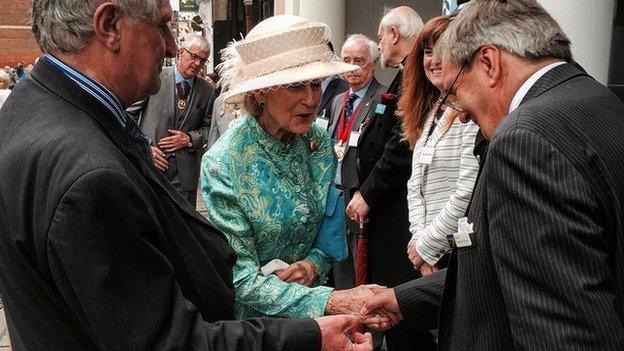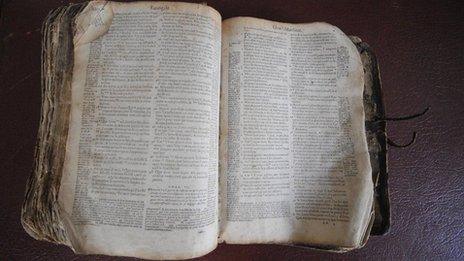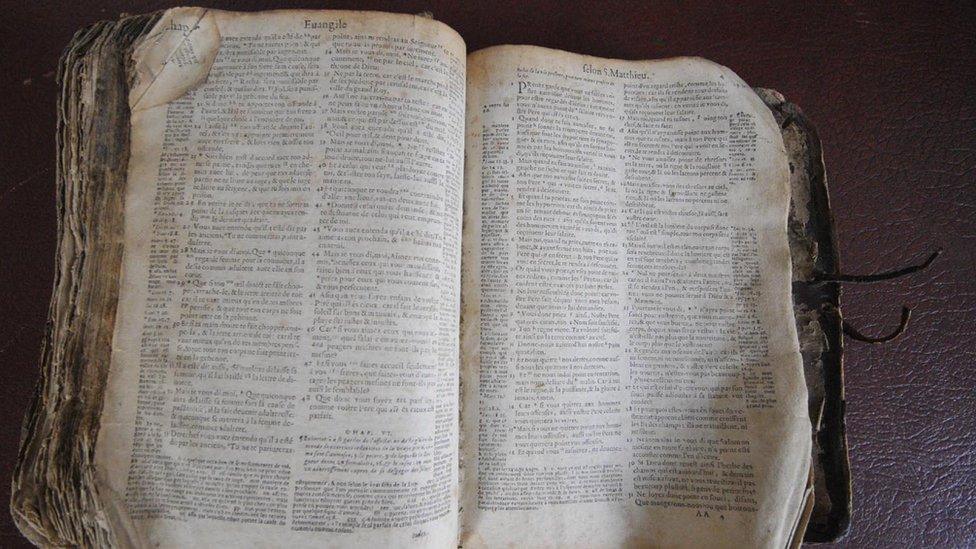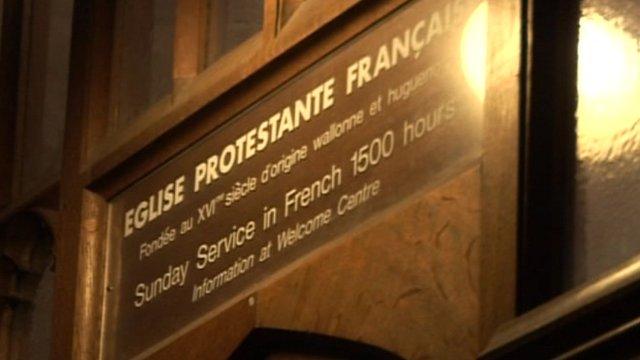Huguenot museum in Rochester opened by princess
- Published

The Huguenot Museum in Rochester was officially opened by Princess Alexandra
A museum dedicated to the Huguenot people has been officially opened in Rochester in Kent.
The Huguenot Museum in the High Street was opened by Princess Alexandra following a £1.5m development project.
The top two floors of the former French Hospital have been dedicated to the 250,000 protestants who fled France in the 17th and 18th Century.
The centre, includes three exhibitions telling the story of the Huguenot's persecution and fleeing from France.

The French Hospital is displaying its collection of memorabilia including a Bible that had been baked in a bread loaf
There is also an archive and research centre in the building.
Between 60,000 to 80,000 of the group of Huguenots, who fled religious persecution in France, settled in England, mainly in the South East in places such as London, Canterbury and Sandwich.
Their legacy can be found in crafts such as silk weaving, silversmithing and furniture-making, together with banking and insurance.

History of the Huguenots
In 1685, King Louis XIV revoked the Edict of Nantes, which had granted Protestants in mainly Catholic France the freedom to worship in specified areas
Facing severe persecution, many Huguenots fled the country
In 1681, Charles II of England offered sanctuary to the French Protestants
Between 40,000 and 50,000 Huguenots sought refuge in England from 1670 to 1710, an estimated half of them settling in London

The French Hospital, founded in 1718, provides accommodation for elderly people who are of Huguenot heritage in about 60 apartments.
On display is a collection of paintings, engravings, furniture, silverware, and memorabilia, including a Bible that had been baked in a bread loaf.
- Published2 April 2014

- Published13 April 2013
- Published9 July 2012
